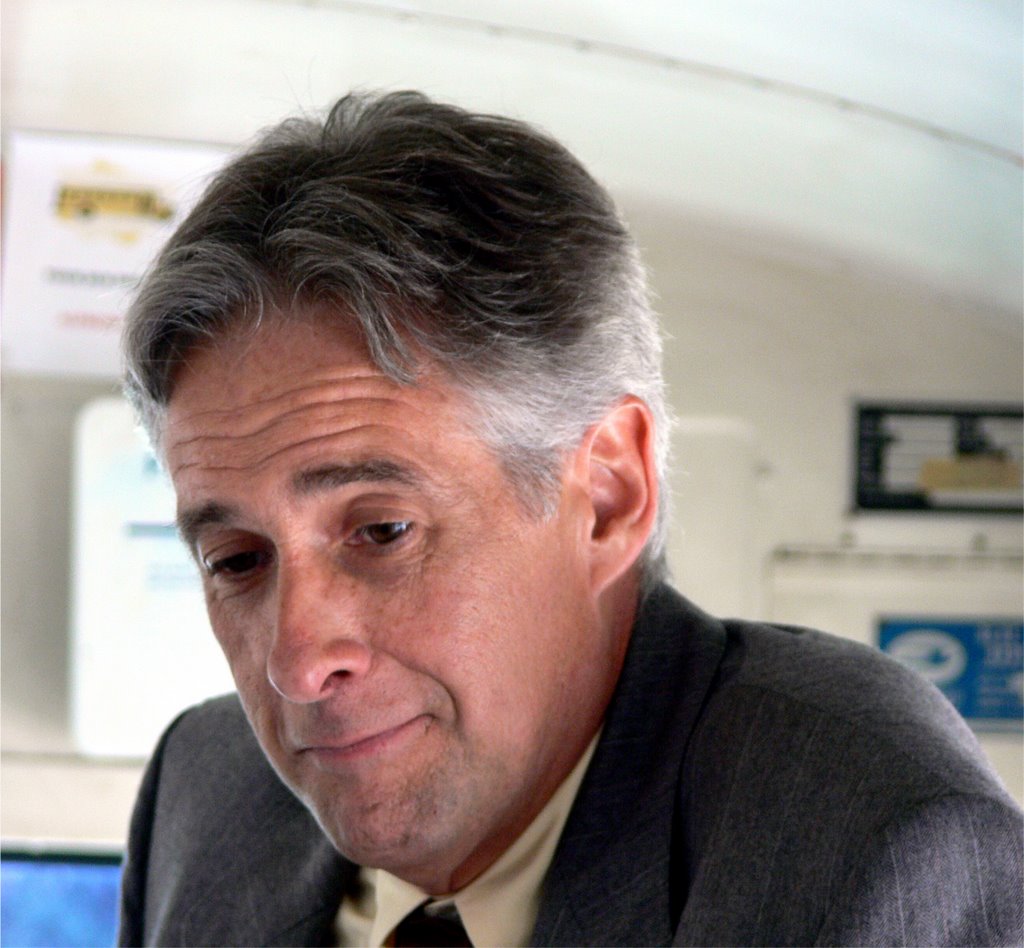I Take Time Off Before Leaving
I was told Dailin took the buy out too so there was now enough workers leaving the paper. No one would need to be pushed out of the Washington Post building kicking and screaming - at least not at that point in time. Dailin was a funny guy. I suppose he has a couple years on me and his personality and lifestyle are similar to mine. However, he's Chinese having been born in Mao's China before emigrating to America. He tells the story about when he was a young man and heard a knock at the door. He opened the door to find a government official standing there who began speaking to him. "GOOD NEWS COMRAD! You are going north to grow food for the people!" And that was that. Dailin grabbed a few things and before long was on a train heading north to do hard labor. He said it was really cold where they we at and the barracks didn't have any heat. Still the way he told the story came out humorous or at least he could see the humor now. I'm sure he wasn't smiling back in the 1960's though. But even enduring these hardships that I couldn't even imagine there he was working with me at the Post leading a similar life. He had some kids though younger than mine. He was married but lived in Virginia.
The Washington Post building looked dingy and outmoded for the new reality. This seven story office building taking up half the city block just around the corner from the White House was a shiny facade on the outside complete with a red restored linotype machine sitting by the front door. There was new photo art on columns by the main 15th Street entrance of workers diligently creating the paper. The truth is there was few on these ad columns who at that point worked for the paper. Former workers came for visits, especially managers, because they missed crew. They'd been forced to leave before they wanted to and were left with an expensive lifestyle that a manager's pay scale could afford easily. However, the retirement package meant a drastic drop in everything including healthcare, cash and prizes. Plus I sure many missed the prestige that came with the position so a visit brought back the glory days. Then they would return home to a wife who I personally heard them arguing with while in the last days of their employment at the paper. Well, I heard the manager's side of the conversation and it didn't sound positive for the outlook of the future. Everything had deteriorated in the economy so fast that it took many by surprise. Not me however. The building was in the same state. On the outside everything appeared normal and prosperous. Walk by, come in the front entrance or enter as a top Washington Post editor or manager in the new garage, take the renovated elevators to their offices and you'd be impressed. The rest of the building was a different story. These were the same halls, walls, tiles that Woodward and Bernstein has walked 50 years ago before the Watergate days. The building was now a dinosaur bombarded by Internet asteroids every second of the day. On the ad ops sixth floor half the joint was vacant and dark. In the beginning of my days working at the Post, going to the cafeteria meant crossing this area and nodding to the workers on the way to the elevator. Now it was dark and lonely. All of those classified workers were gone now. Walking to the elevator you could hear your heel clicking and echoing back in the silent emptiness.


